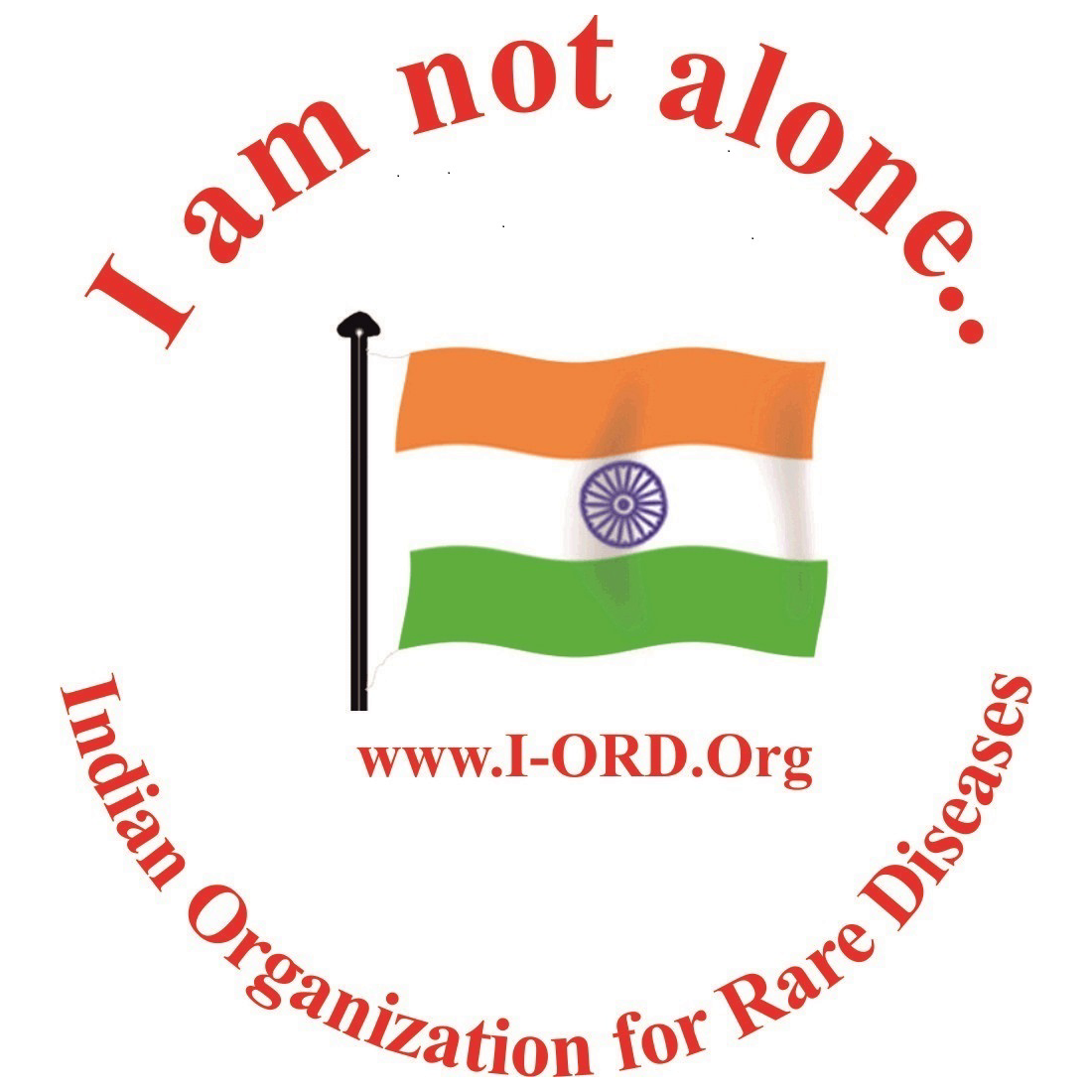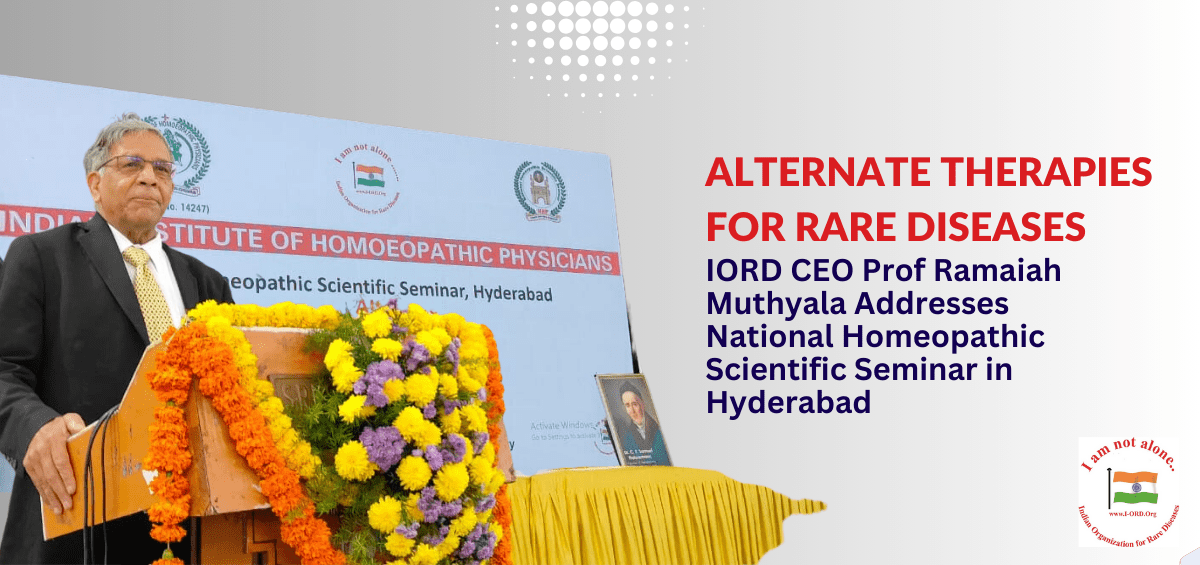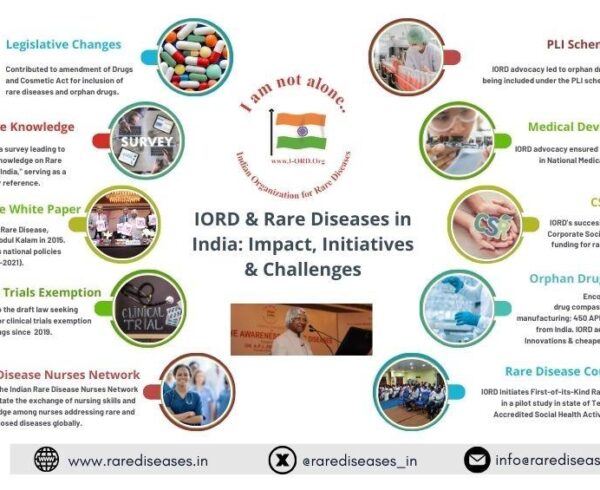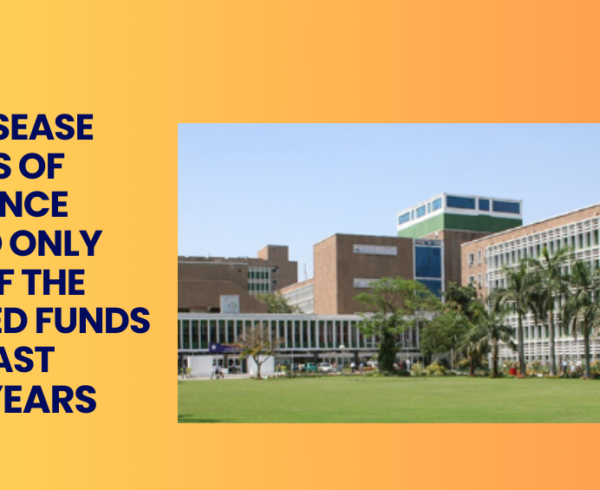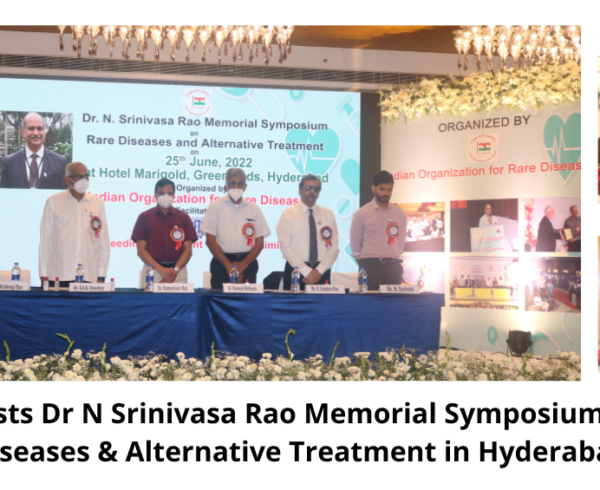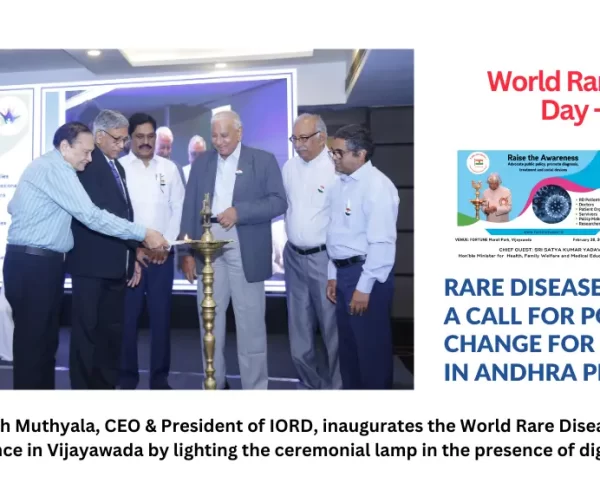The following is an excerpt from an address on Alternate Therapies for Rare Diseases delivered by Prof Ramaiah Muthyala, President & CEO, Indian Organization for Rare Diseases at the National Homeopathic Scientific Seminar-2024 in Hyderabad.
Background:
It was in 2016 when the topic of alternative therapies for rare diseases was first introduced at the XXIV National Homeopathic Congress of the Indian Institute of Homeopathic Physicians. Since then, it has garnered significant attention, particularly with discussions led by AYUSH Health Minister Sri Shripad Naik. These discussions emphasized the importance of exploring unconventional approaches to healthcare, especially for addressing the unique challenges posed by rare diseases.
India stands at the epicenter of traditional forms of healing, with the market size of AYUSH growing steadily. From 2014 to 2020, the market size witnessed a remarkable 17% growth, reaching $18.1 billion. India’s share in this market has also seen a notable increase, rising from 0.5% in 2016 to 2.8% currently. This growth reflects a shift towards integrating traditional healing practices into the mainstream health system.
To achieve this integration, India has adopted various strategies, including inter-ministerial cooperation, bridging gaps in healthcare delivery, building robust infrastructure to support alternative therapies, and promoting research in this field. These efforts signify a concerted push towards harnessing the potential of alternative medicines, such as homeopathy and Ayush, to address the healthcare needs of individuals with rare diseases.
Mainstreaming alternative medicine: Role of Ayush
The Ministry of Ayush has been actively working towards mainstreaming alternative medicine approaches, particularly Ayush, as part of an integrated healthcare strategy through the National Health Mission (NHM). One of the key initiatives under this mission is the National Ayush Mission (NAM), which focuses on co-locating Ayush facilities at various healthcare centers across the country, including Primary Health Centers (PHCs), Community Health Centers (CHCs), and District Hospitals (DHs). Additionally, the government has implemented the National Program for Prevention and Control of Non-Communicable Diseases (NCDs), emphasizing health promotion and management of lifestyle-related disorders.
Research plays a crucial role in standardizing protocols and integrating alternative medicine practices like Ayush into mainstream healthcare. Autonomous research councils have been established to conduct research studies and develop standardized protocols. Furthermore, there is a concerted effort to integrate yoga, a key component of Ayush, into mainstream medical care to enhance holistic health practices.
To facilitate the global recognition and trade of Ayush products and services, the government has established a dedicated Ayush Export Promotion Council. Through bilateral and multilateral negotiations with other countries, efforts are being made to boost trade facilitation and recognition of the Ayush system on an international scale.
In addition to promoting Ayush services within the country, India is extending support to member countries of the World Health Organization (WHO) in regulating, integrating, and positioning traditional medicine within their healthcare systems. This collaborative approach aims to address the challenges faced by countries in incorporating traditional medicine practices effectively.
Role of Homeopathy: Rare Diseases
Homeopathy takes a unique approach to treating diseases, focusing on the individual’s distinct characteristics and symptoms rather than solely on the disease itself. It considers various factors such as lifestyle, stress levels, and family medical history to tailor treatment plans accordingly. This individualized and constitutional approach allows for a more holistic assessment of the patient’s health.
Unlike conventional medicine, homeopathy treats diseases based on the symptoms presented by the patient rather than solely on the pathological or organ-specific approach. It relies on careful evaluation of the presenting symptoms to select the appropriate remedy. Additionally, homeopathic treatment is highly individualized, recognizing that each person may respond differently to the same remedy.
Homeopathy offers a complementary or alternative treatment option for rare diseases, providing palliative relief and reducing side effects of conventional treatments. However, there is a need for more collaborative research with modern medicine to establish its efficacy in treating rare diseases. Despite challenges, homeopathy shows promise in enhancing treatment efficacy and providing relief to patients with rare disorders.
